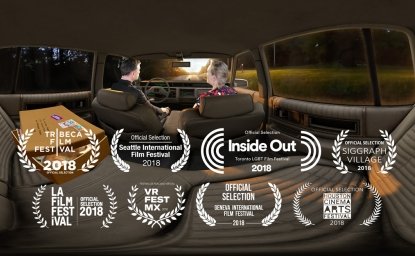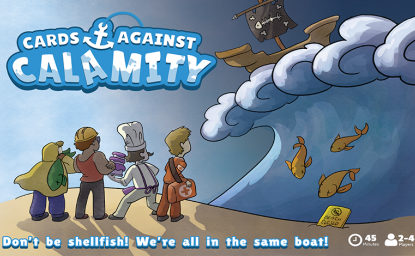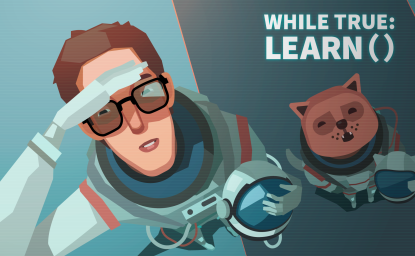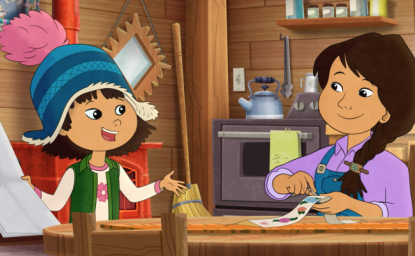Games Round Up: Human Migration
As part of the Games Round Up blog series, we take a closer look at games used for building understanding around human migration.

A blog of the Science and Technology Innovation Program
As part of the Games Round Up blog series, we take a closer look at games used for building understanding around human migration.
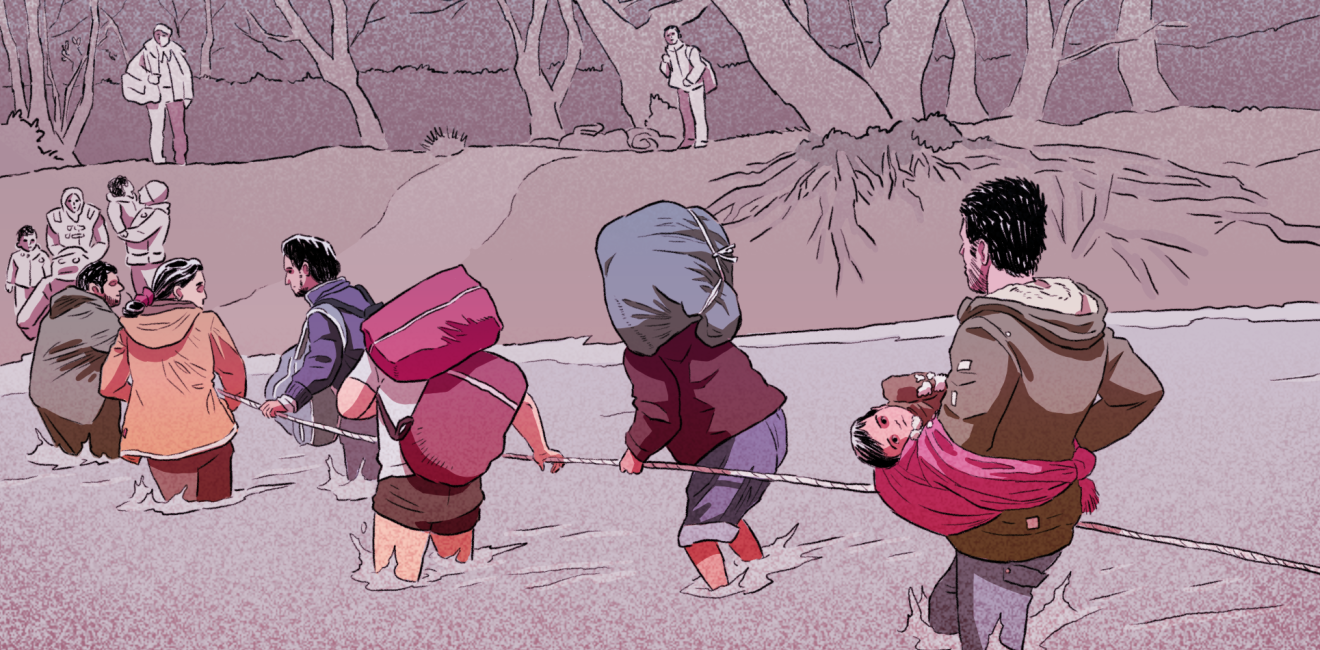
There were over 100 million individuals all over the world who were forcibly displaced during the year 2022. The Woodrow Wilson International Center for Scholars's Refugee and Forced Displacement Initiative (RAFDI) examines these global crises, not only in the regional contexts of Syria, Senegal, Venezuela, Haiti, Afghanistan, Ukraine, and others, but in the root causes that impact displaced people. Part of RAFDI's mission is to be a voice for those in crisis; too often refugees are treated in aggregate, which depersonalizes the issue.
It is very hard to walk a mile in someone else's shoes, but one medium has been utilized time and again to help people empathize with refugees through experiential learning: games and simulations. As a tool, games and simulations help personalize the stories of migrants by combining narrative and interactivity. Games like Syrian Journey made by BBC News in 2015, or indie hits like Papers, Please (2013), shed light on different perspectives in the migration process.
For this Games Round Up, we wanted to collect learning tools that will help make the human experiences of migration accessible. These games and simulations strive to start building the foundation for learning what the migration experience can look like, the various choices and tribulations that those migrating engage with on their journey, and humanize the experience that is so often talked about in only a theoretical or political landscape. Some games take a realistic approach—underscoring an actual crisis. Other games fictionalize the experience, and—through this abstraction—draw new audiences in to explore complex themes around migration and displacement.
($2.99 ; Android, iOS, PC, Switch; Rated E for everyone)
Content warning: off-screen death and violence
Bury me, my Love, developed by The Pixel Hunt in co-production with Figs and ARTE France, immerses the player into the story of Nour, a Syrian refugee, and her husband Majd, as she sets on her journey in an attempt to find safety in Europe. The game can be played on a PC or Switch, but it plays optimally on a mobile device. While Bury me, my Love is not itself a true story, the simulation and the usage of one’s own smartphone allows the players to step into the fingers of thousands of people who are fleeing Syria and searching for a safer and happier life, all while trying to stay in touch with their loved ones that are left behind. The player chooses Majd’s responses to Nour as they attempt to give each other strength, advice, and keep their relationship strong. There are three modes of the game, a real time version that allows players to experience the hours in between messages, a medium delay, and a fast-track option where the game carries on without the realistic pauses. Bury me, my Love, has been nominated for or won more than 20 events and awards including, The Game Awards, the GDC Awards, the BAFTA Game Awards, Google Play Indie Games Contest, and IndieCade Europe.
($12.99; Playstation; Rated E 10+)
Content warning: off-screen death
Massira is a storytelling and puzzle-driven game that follows the journey of Numi and her grandmother Yara as they migrate from Syria to Europe. The game is played through the persona of Numi, a young girl who at times can instruct her grandmother through obstacles. The art style that Frost Monkey Games created for Massira is minimalistic and focuses on the perspectives and lived experiences of individuals instead of the macro political lens of migration and political conflict. Massira has won ‘Best Art Award’ and was nominated for the ‘Best Game Award’ and the 'Best Child Game Award’ at PlayStations 4th Talent Awards. This is Frost Monkey Game’s first project and is a collaboration with PlayStation Talents. Ultimately, Massira can be used as a tool to introduce this topic and some of the realities of Syrian migrants to people of all ages and is best when played in conjunction with complementary educational materials.
($0, requires a Hololens mixed-reality headset; XR; Rated E for Everyone)
Content warning: mentions of violence
Like Papers, Please, Terminal 3 turns the tables with player perspective for immigration, with the user playing the role of a security official; in this case, the player is a Transportation Security Administration (TSA) agent in an American airport who must interrogate Muslim travelers trying to enter the US. In this augmented reality experience, the user has much more narrative control pertaining to the kinds of questions they can ask than most games, oftentimes being able to craft their own questions. The experience uses a Hololens mixed-reality headset to help users viscerally empathize with aspects of the Muslim experience in America. One particularly powerful part of the XR simulation is that the Muslim characters who users meet start out blurry and pixelated. It is only when users humanize the other character that they come more into focus. If the user is hostile or “just follows protocol”—the character remains pixelated as the user does not take the time to truly see them. Developed in 2018, Terminal 3 was a breakout project for 1RIC, an interactive storytelling studio that has since become Jadu, an AR game design studio. The project was made in collaboration with and was funded by Ryot and Unity. In 2018, Terminal 3 was an official selection in the Tribeca Film Festival.
($0; XR; Rated E for Everyone)
Content warning: off-screen violence and death, anti-LGBTQIA+ violence
Another Dream is an XRinstallation based on the love story of a real Egyptian lesbian couple forced to leave their lives behind in Cairo due to a post-revolution resurgence in anti-LGBTQIA+ violence. In the story, the two women flee to the Netherlands together, where they seek asylum. Two audience members at a time can immerse themselves in the couple’s interactive journey, each person seeing and hearing the experience from the perspective of one of the women. The audience members interact with the women’s world and get to deeply know their characters. Concluding the experience, each audience member is shown a different ending. Then, they are given a written prompt to spark a debrief session about their experience of the interactive. When experienced in a museum, this interactive is paired with an accompanying installation that is centered on reflecting on their experience of Another Dream, jump starting conversations about migration and identity. Through these processes the players take in the interactive’s driving question: “How do you rebuild a life when you know you can never go home?” The original installation was created by Ado Ato Pictures, and it was exhibited at the Amsterdam Museum in 2020 as part of the “animated transmedia series,” “Queer in a Time of Forced Migration.” The piece is available globally for exhibition and can be viewed on Viveport.
(Choose your own price; Downloadable interactive visual novel for Windows and mac OS)
Content warning: off-screen violence, racism
Outcast Lovers follows the story of a couple, Mary and Ola, who stumble across (a.k.a. hit with their car) a young boy seeking asylum in the UK. Throughout the game the player acts as the voice of either Mary or Ola, and decides what they are going to do in their predicament. The game is set in the UK in a time when immigration officers are patrolling the streets and detaining people without citizenship. Outcast Lovers is a sequel to the game The Night Fisherman, which is a part of a series of games created by Far Few Giants and supported by their Patreon subscribers. The aesthetic is art-deco in color and minimalist in composition, allowing the player to imagine anyone in the role of the characters, and reinforcing the idea that anyone could place themselves to be in a position to help. What will the couple do: turn the boy in to the authorities, or provide shelter and adopt him on the spot? It’s your decision.
($0; Windows, Mac, and Linux ; Rated E for Everyone)
Whereas many other games in this round-up are grounded in real-life events and crises, Resilience instead introduces players and new audiences to aspects of migration through immersing them in a sci-fi world. Created as a senior capstone project by eighteen students at Drexel University, the allegorical story line of Resilience allows the game’s players to dive into the nitty-gritty logistics of what it takes to run a refugee camp, and the gameplay encourages people to think about migration in new ways. The game is based on research of various refugee camps with Camp Moria being a prime focus. Camp Moria was founded in 2013 built for roughly 3,000 people, and grew to be the largest refugee camp in Europe, home to more than 20,000 people until it was burned down in 2020. The creators hoped that this game would raise awareness for those that were migrating. In this abstracted, city-builder style take on that real life scenario, the player takes on the responsibility of building a refugee camp for aliens and must do all that they can to help the refugee camp successfully survive. Resilience won Best Student Game in the 2020 Games for Change Awards and came in second place for Drexel University's Computing and Informatics Senior Project Winners Game.
($4; Steam, Mac and PC; iOS, Android; Rated E for Everyone) NOTE: Not compatible with Mac Catalina 10.15 and above.
Developed by Blindflug Studios, Cloud Chasers is a game that imagines a future dystopia where the earth is scorched—covered in deserts—and the only hope of sanctuary is in the clouds. Throughout the game, the player helps a father and daughter navigate their way through the desert and up to the world of clouds above by managing their resources, trading well to upgrade their glider for their aerial journey, and evading the cloud world’s deadly drones. Players participate in multiple narratives and protect the health of the family. Cloud Chasers is a non-linear, immersive story about a futuristic journey of migration that allows players to reflect on the experiences and stories of migrants in the present. The game made waves in 2015 and won multiple awards, including GDC Best In Play, European Indie Game Days Grand Prize Winner, DEIS Innovation Prize Winner, SDGA Audience Award Winner, in addition to being an official 2015 Indiecade @E3 selection.
The Night Fisherman: The first game from the same series as Outcast Lovers (Choose your own price; Downloadable interactive visual novel for Windows and mac OS; 2020)
The Book of Distance: A virtual journey immigrating from Japan to Canada in 1935 and living through the experiences of WWII (Free; VR; Rated E for Everyone; 2020)
Clouds Over Sidra: A VR film guided by Sidara, a 12-year-old girl, through living in The Zaatari Refugee Camp in Jordan (Free; XR, Rated E for Everyone; 2015)
[Coming soon] Venba: Play as a mom teaching the next generation about culture through recipes and storytelling after her family migrated from India in the 1980’s



The Serious Games Initiative communicates science and policy complexities through the world’s most dynamic medium: gaming. Read more


The Science and Technology Innovation Program (STIP) serves as the bridge between technologists, policymakers, industry, and global stakeholders. Read more

